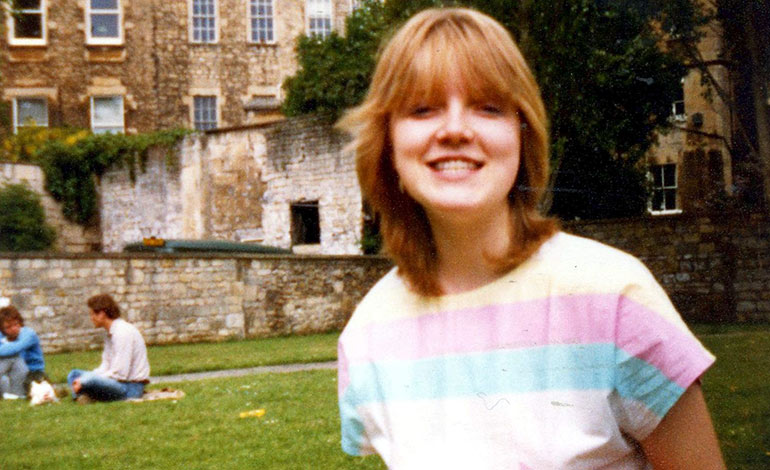A cold-case investigation into the murder of Melanie Road in Bath has won a prestigious international ‘DNA Hit of the Year’ award for its use of the national DNA database to bring a murderer to justice.

Operation Rhodium was the investigation into the murder of 17-year-old Melanie Road in Bath in June 1984.
After almost 32 years of waiting for answers, her family finally saw her killer admit his crime in 2016. He was handed a life sentence.
Forensic scientists and ‘scenes of crime’ officers who went to St Stephen’s Court, Lansdown, where Melanie’s body was found, cannot have known of the scientific advances to come.
At that time they would have simply provided officers with an enhanced blood grouping for the suspect.
However their thorough investigation, including following a trail of the offender’s blood for half a mile, and their faultless storage of the forensic evidence, is what enabled officers to bring the offender to justice in the 21st Century.

Melanie was murdered near her home in Bath in 1984
The case was regularly reviewed and DNA comparisons against the national database rerun as forensic technology evolved.
Former DS Gary Mason was involved in setting up the Avon and Somerset Police’s cold case review team in 2003.
The team prioritised Melanie’s case again in 2009, the 25th anniversary of her death, believing that with full DNA profile for the offender there was a significant chance of identifying him.
Gary, by this time a police staff investigator, arranged for a rerun of the comparison of the suspect DNA profile against the national DNA database in 2015.
The case, and Gary, transferred to the Brunel Major Crime Investigation Team, a collaboration between Avon and Somerset and Wiltshire police, to progress the investigation which saw around 2,500 DNA swabs taken.
Sixty-three-year-old Christopher Hampton had never been arrested for a recordable offence and his DNA was not on the database. However a family member’s DNA was one of hundreds flagged up as being a potential ‘familial’ match, meaning that they could be related to the killer.
Further investigation led Gary to take a swab from Hampton, not realising at the time that this DNA, out of hundreds he had taken during the course of the operation, was the one which would identify Melanie’s murderer.
On learning that the team had won the award Gary said: “We were convinced that one day we would swab the right person. In 1984 the forensic investigators and Crime Scene Investigators decided which samples to take and ensured they were stored correctly.
“Their role and decisions were vital. We’re just the team holding the baton when we crossed the line.”
Gloucestershire Police Detective Superintendent Julie Mackay was involved with the case from 2009 and was the detective chief inspector with Avon and Somerset Police who oversaw it at its conclusion.
She said: “On a personal level Gary and I worked on this case over a number of years together and we were the privileged ones who brought it to a conclusion alongside our colleagues at the forensic services provider Cellmark.
“However that was only small part of the journey. It started with a lot of hard work and attention to detail in 1984. Since then hundreds of police officers and staff touched, and were touched by, the case.
“The outcome would not have been possible without them, the dedication of our scientists and the desire of the team to find the man responsible.
“We are exceptionally proud to be the ones standing up on an international stage, accepting this award on behalf of all those who went before us and worked alongside us.”
At the trial, His Honour Judge Andrew Popplewell commended the 700 police officers and staff involved in the investigation over the years, praising the leadership of the Senior Investigating Officer Julie Mackay and describing Gary Mason and his work as “the backbone of the case”.
The award, organised by Gordon Thomas Honeywell Governmental Affairs, was decided from 61 submissions from 14 countries by a panel of seven international judges with a with career backgrounds in forensic DNA.
The presentation was held at the Human Identification Solutions conference in Rome on Friday 4th May.
Chief Constable Andy Marsh said: “The murder of Melanie Road took place not long before I started my career in Bath. Solving the murder has meant so much not just to Melanie’s family, but to the wider community as well as the policing community.
“In the end it was the advancements in forensic DNA technology as well as the determination, commitment and hard work of our officers that solved the case.
“Being selected as the 2018 DNA Hit of the Year is a great honour and a reminder of the power of DNA databases to bring justice to victims and their families.
“It is also testament to the professionalism of all who have worked on the investigation over the years.”



